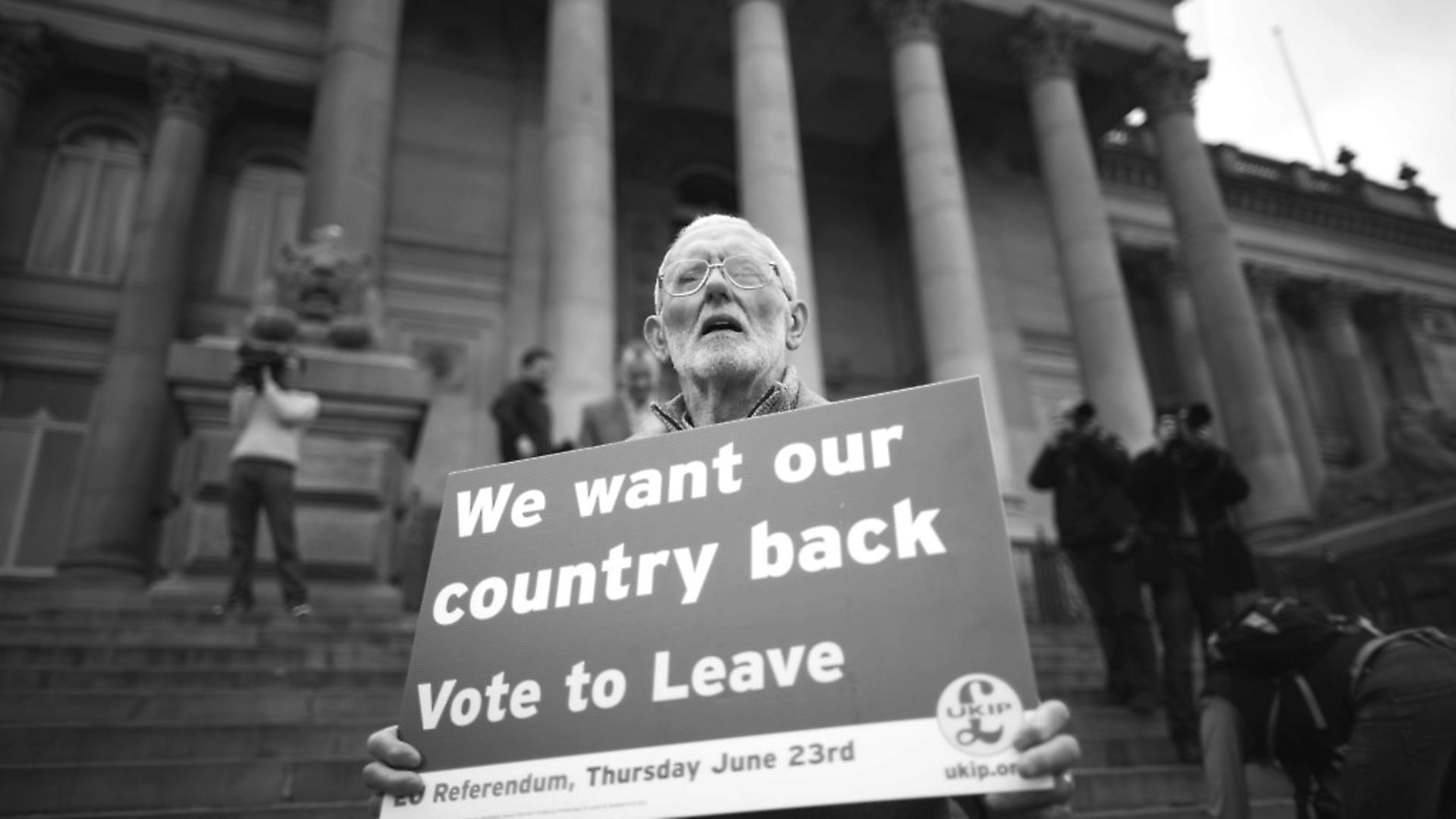
As the realities of Brexit and its economic impact become clearer, alarming generational splits are emerging
Over time, I’ve grown increasingly sceptical of claims and what is politically possible. Not because I outright reject the existence of social and economic constraints – but because the specific lines people draw often seem to say more about their own values and priorities than about the limits of external reality. When someone considers a goal important enough, it’s striking how elastic their conception of what’s ‘realistic’ or ‘sensible’ becomes. Perhaps unsurprisingly, many of us seem far more enthusiastic about taking chances when its other people who are placed at risk. People who are poorer than them, for example. Or younger and consequently more exposed to changes in the labour market.
Take Brexiteers, for example. During the referendum campaign, the Leave camp focused heavily on the alleged economic benefits of quitting the EU. There were arguments about free movement driving down wages for British nationals working in certain industries – a claim contested by many economists – and empire-nostalgic fantasies about a £100 million ‘trade yacht’ being commissioned, to sail the high seas securing exciting commerce opportunities in far-flung lands (never mind that we already have very healthy trading relationships with most of the countries mentioned, facilitated by our membership of the EU). Most memorably, there was the promise of an extra £350 million per week to be spent on the NHS – which was plastered in giant letters on the side of a big red bus.
Just over a year later, and the tone of the conversation has dramatically changed. Most of the prominent Brexit cheerleaders have admitted it won’t actually make us more prosperous, at least not anytime soon. Instead, we’re told that the hardship will be worth it – in service of some greater, hard to define goal. Words like independence, freedom and sovereignty are thrown around, but in a globalised economy it’s unrealistic to expect we can deviate too much from international norms. Border control is definitely part of it – but the main justifications for wanting to limit immigration are ringing increasingly hollow.
A recent YouGov poll found that a massive 61% of Leave voters believe economic damage is a ‘price worth paying for Brexit’. Further, 39% of the pro-Brexit respondents said members of their family losing their jobs would be worth it to exit the EU, and only 38% definitely disagreed.
And there was a clear age split: older demographics were significantly more comfortable with the idea of increased unemployment. Half of Brexit-supporting retirees said they were happy to see younger family members lose their jobs. Meanwhile, only a quarter of 18-24s Leave voters (the demographic most at risk from a downturn in the labour market) agreed unemployment in their family would be a justified cost.
It’s difficult to square these stats with Brexiteers’ professed concerns about immigration increasing competition for jobs, housing and public services. Indeed, I’m finding it hard to avoid concluding that some proportion of pensioners care less about their grandchildren’s basic wellbeing than they do about avoiding having Polish neighbours.
Maybe that’s an uncharitable summation. Either way, many of those willing to risk economic damage as a result of Brexit have been keen to preach caution in other circumstances. How many older voters have scoffed at the younger generation voting overwhelmingly for Jeremy Corbyn’s Labour – dismissing policies like free higher education, large-scale housebuilding and a £10 minimum wage as unrealistic and unaffordable? Maybe the fact young people have borne the brunt of recent spending cuts makes us more enthusiastic about left wing economic policies. Not every retiree fits the affluent stereotype, but as a group they’ve been relatively sheltered from the worst of Conservative austerity.
Of course, hypocrisy isn’t the exclusive preserve of any one demographic or political faction. Watching previously intractable Corbyn supporters adjust to the Labour leadership’s triangulation on free movement has been interesting. It seems that almost everyone sees the necessity of compromise if it helps them achieve the things they prioritise. On the other hand, I’ve seen some pro-EU liberals decry Labour’s refusal to take the kind of dogged, anti-Brexit stance that would surely have led to near wipeout in the last general election.
Though I agree that leaving the EU is a disastrous idea – and empathise with those who see it as Labour’s job to campaign and shift public opinion, not merely to follow it – I can’t help rolling my eyes when just two years ago, those same people insisted to me it was impossible for the party to oppose the household benefit cap. A policy that was recently ruled unlawful by the High Court on the basis it causes ‘real misery for no good purpose’ and ‘exacerbates poverty’, particularly for single parent families.
We should remember that many of our country’s greatest political achievements were criticised at the time as pipe dreams. In the immediate aftermath of a catastrophic and costly war, the National Health Service was created. When the Blair government first introduced a minimum wage, naysayers claiming it would destroy jobs were proven conclusively wrong. It’s also quite possible Brexiteers are correct when they argue leaving the EU won’t cause the sky to fall in.
I’m convinced that audaciousness can be a political virtue in many circumstances. Surely, though, the case for taking chances depends entirely on the value of the goal? When I try to figure out who actually benefits from Brexit… I’m stumped. Predominately older voters seem content to risk condemning young people to economic misery on very flimsy grounds.









